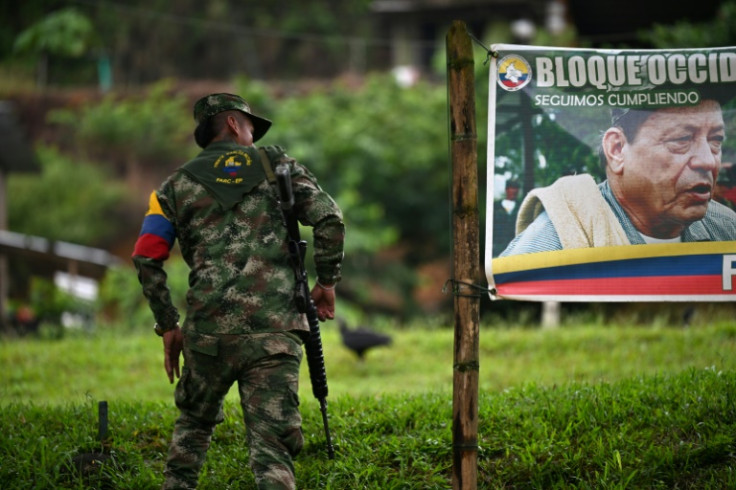
The Colombian government is considering whether to fully suspend a ceasefire with armed group Estado Mayor Central (EMC) after a new series of attacks attributed to it.
Two bombings resulted in the death of four people in the southeastern Cauca state on Monday, local press reported. The fatalities included two police officers.
"The president is weighing all the elements that we provide and it is ultimately him who will determine when and where there is or is not a ceasefire," said Defense Minister Ivan Velázquez.
The EMC, which has some 3,500 members, rejected a landmark 2016 peace agreement in the country, which saw the largest armed group, the Revolutionary Armed Forces of Colombia (FARC), lay down their weapons.
Should Petro effectively make the decision, it would further distance him from his "total peace" slogan, a cornerstone of his campaign. He already implemented a partial suspension of the ceasefire in three states in March following renewed violence.
It is the latest of a series of escalations by armed groups in the country this month. Earlier in May, the National Liberation Army (ELN) lifted its suspension of kidnappings, blaming the government for failing to fulfill the promises made during peace talks.
The rebel group said that the decision came after the government delayed establishing a multi-donor fund to support the peace process, aiming at ending six decades of armed conflict in the country.
Colombia's government, on the other hand, clarified in a statement that the fund wasn't intended as an incentive for the ELN to stop kidnapping, noting that the delays occurred because the rebel group called for an additional round of talks.
"We hope the ELN keeps its commitment to Colombian society and the international community to put an end to any form of kidnapping," the government's peace delegation said in the statement.
And just one week earlier, Petro said that a significant amount of military equipment, including millions of rounds of ammunition and even missiles were missing from two army bases in the country. The figure was later confirmed to be much lower, but the event confirms the escalation in the country.
Petro said last week that chances are the weapons ended in "networks dedicated to the mass trade of weapons." He added that recipients could include both local and foreign criminal organizations, including those currently sowing chaos in Haiti.
"This shows that mobs have penetrated our institutions through false ideologies. That ammo might be killing our law enforcement officials, our citizens and, perhaps, young people and those in Haiti and elsewhere in the world."
© 2025 Latin Times. All rights reserved. Do not reproduce without permission.





